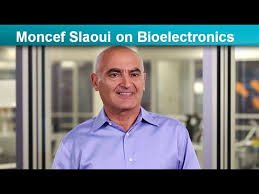.jpg)
On May 15, President Donald Trump officially announced Operation Warp Speed, a project to develop and deliver 300 million doses of a vaccine for the coronavirus disease 2019 by January 2021. Operation Warp Speed was managed by White House senior adviser Jared Kushner with the support of the United States Department of Defense and the United States Department of Health and Human Services. Slaoui, who called the 12-to-18 month time frame "very aggressive" but "achievable", was named as the chief adviser of the project, working alongside chief operating officer and four-star general Gustave F. Perna. Other candidates for Slaoui's position reportedly included Elias Zerhouni and Arthur Levinson. Secretary of Health and Human Services Alex Azar praised Slaoui as "arguably the world’s most experienced and successful vaccine developer".
To avoid a conflict of interest, Slaoui resigned from the board of the Massachusetts-based biotech firm Moderna, which had been developing a vaccine for the coronavirus. Slaoui also sits on the boards of SutroVax, the Biotechnology Innovation Organization, the International AIDS Vaccine Initiative, and the PhRMA Foundation.
Al-Salawi was born in Morocco and studied there to the limits of the baccalaureate. At the age of 17 he left Morocco to study medicine in France, but he settled in Belgium, where he studied partial biology, and received a doctorate in immunology. He settled in Belgium for 27 years, where he married his partner, who was working as a researcher in viruses, who discovered a vaccine against a virus that appeared in the 1980s that was attacking cows similar to HIV in humans. Moncef El-Selawy left Belgium with his wife to the United States to become a professor at Harvard University, and within 15 years, he participated in the discovery of most immunology vaccines such as malaria, cervical cancer, pneumococci and others.
He was appointed as responsible for the research and development division of GlaxoSmithKline, where he obtained important results, since between 2011 and 2016, the group, on top of which produced 24 drugs and new vaccines for very advanced viruses, was formally approved by the US Food and Drug Administration, as well as He succeeded in reducing the budget by 40%. In 2017, after a long and successful scientific career, Al-Salawi decided to retire and leave the place for the new generation of young researchers.
Partnerships with Verley, a life sciences subsidiary from Google, have contributed to a project to make small implantable electronic systems that can be used to correct irregular and irregular nerve impulses, called electrical medication.
